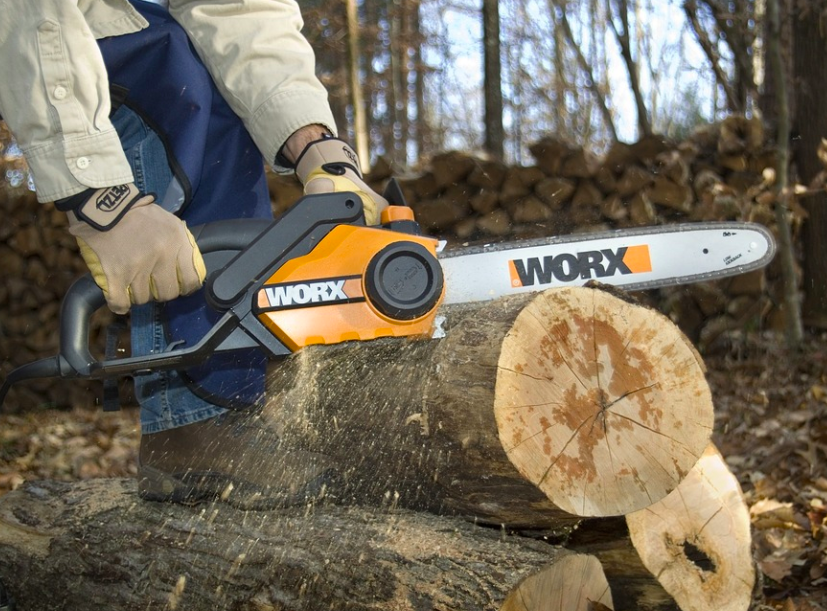Types of sewer pipes are mainly classified according to the material of manufacture. Today, products made of plastic, such as polypropylene, polyethylene or PVC, are increasingly used. Less commonly used are cast iron, steel and ceramic pipes. An overview of the most popular types, as well as a rating of the best models and manufacturers, is presented in this article.
The content of the article
-
Types of pipes
- Metal
- Plastic
- Ceramic
- Rating of the best pipes
Types of pipes
When considering which sewer pipes are better, you should study the main types of these products. Most often they use metal and plastic, less often ceramic. Each type has its own characteristics and has certain advantages and disadvantages.
Metal
Metal pipes are represented by cast iron and steel. They are strong, durable, and can withstand almost any temperature and pressure. However, they are heavy and therefore inconvenient to install. It is for this reason that steel and especially cast iron products are becoming less and less popular. If we talk about which pipes are best for sewerage, plastic products are most often chosen.
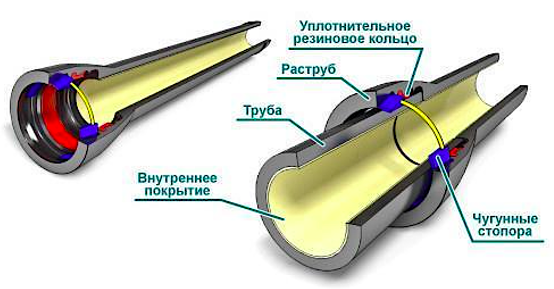
Plastic
Sewer pipe material such as plastic has many advantages:
- completely resistant to corrosion;
- has a smooth inner surface, so it practically does not accumulate dirt;
- resistant to aggressive chemicals, for example, alkalis and any detergents;
- very light in weight - easy to transport and install, as well as repair.
But you need to take into account that plastic deforms when heated to 90-100 degrees. However, in the case of sewerage, this disadvantage does not play a role, because too hot water usually does not enter the drain.
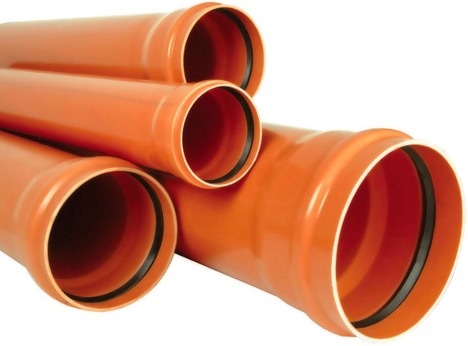
There are the following types of plastic sewer pipes:
- Made from polyvinyl chloride (PVC) - used everywhere due to its high strength and low weight. However, they are not resistant to temperature changes and aggressive chemicals. In addition, you need to take into account that such products release toxic substances in the event of a fire.
- Polypropylene More resistant to high temperatures, can withstand up to 100 degrees. In addition, they are not damaged by alkalis, detergents, and are environmentally friendly. That is why polypropylene often takes first place in the ranking of sewer pipes in terms of quality. Disadvantages include instability to sunlight and high elasticity. However, these features do not prevent the use of such pipes at home.
- Polyethylene The pipes are not subject to corrosion and alkali, and are lightweight. In addition, they are durable and can withstand even strong pressure. But the maximum operating temperature is only 70 degrees. You also need to take into account that polyethylene is not resistant to strong impacts and especially cuts.
- Corrugated The pipes bend well, so they are easy to install. They are particularly strong and durable. They have a smooth inner surface that prevents the deposition of dirt.
Ceramic
When studying which sewer pipes are best for a private house or apartment, ceramic products are least often considered. They are not so strong, quite fragile, and can break upon impact. In addition, they are heavy and therefore inconvenient both in transportation and during installation. However, these types of sewer pipes have undeniable advantages:
- resistant to almost any temperature;
- withstand even strong pressure;
- not susceptible to corrosion;
- durable;
- resistant to solar radiation;
- resistant to alkalis and other aggressive substances.
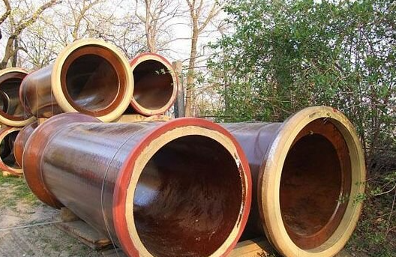
Rating of the best pipes
When considering different pipes, you first need to pay attention to the material and diameter. Often, plastic products are installed in modern apartments and private houses. As for the diameter, in most cases it is 100 mm, i.e. 10 cm. It is also recommended to take into account the following rules:
- When installing a pipe for a bathroom, 50 mm is sufficient.
- The riser should be the widest - 100-110 mm.
- If you install the system in the basement, choose products with a diameter of 110-150 mm.
- If you install an external pipe that discharges waste into a septic tank or a special pit, it is better to install from 110 to 150 mm.
If we consider specific models taking into account technical characteristics and customer reviews, it is recommended to pay attention to the following rating:
- "Contour" (diameter 110 mm). Made from polypropylene. Durable, do not rust or rot. The manufacturer provides a warranty of 10 years, although in fact they last much longer.
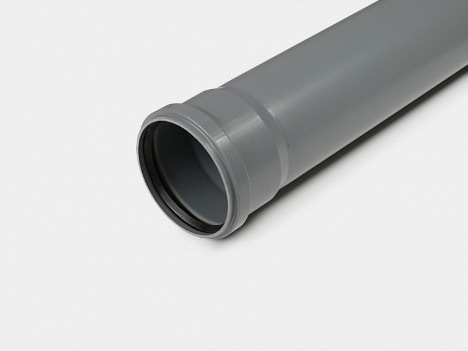
- Ostendorf KGEM – PVC pipe. It also has high strength, so its service life is several decades. Diameter 110 mm.

- SN4 – outer pipe (110 mm) made of polypropylene with a wall thickness of 3.2 mm. It is light in weight (1 kg per 1 linear meter) and can withstand even large temperature changes.
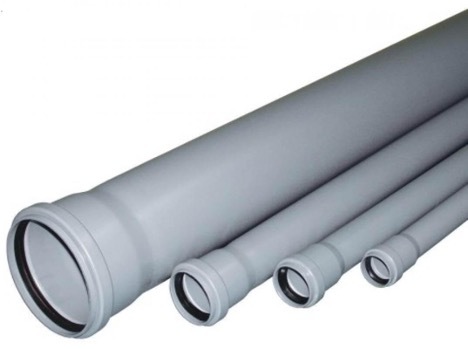
- “Hemkor” are Russian-made pipes that can withstand pressures of up to 20 bar. They are lightweight, so they are easy to transport and install. Completely safe and do not contain harmful substances. Therefore, if we talk about which sewer pipes are better in an apartment, it is worth considering this particular manufacturer.
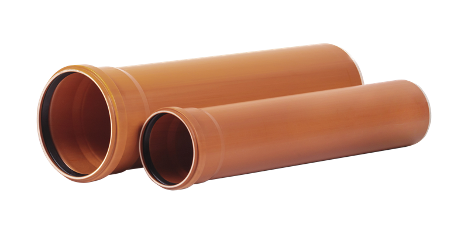
- "Sinicon" - products of joint Russian-Italian production. Withstands temperatures up to 95 degrees, acidic and alkaline environments. They are durable, so their service life is 50 years.
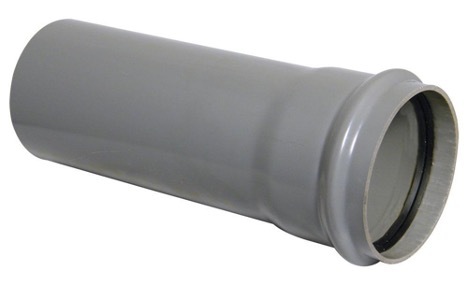
When studying different models, you need to take into account such a factor as noise absorption ability. In this regard, it is better to focus on pipes with a wall thickness of at least 3 mm. Although, if necessary, you can build a decorative box that will not only protect from strangers sounds, but will also make the design more aesthetically attractive and fit it into the existing design.


